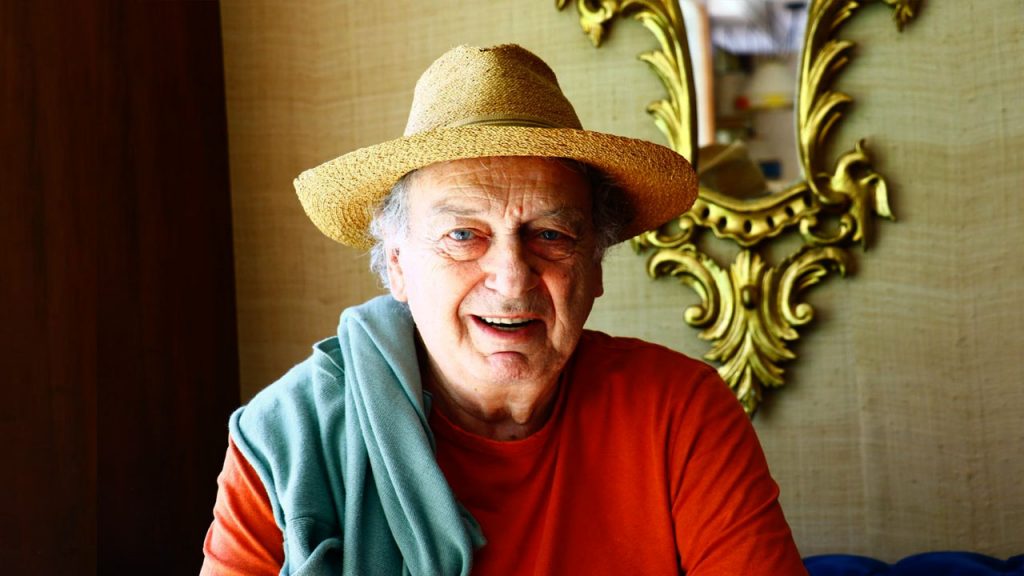
Steven Frears is going to make a film about Billy Wilder, Han-Joon Chang confesses that One Hundred Years of Solitude is his favorite novel, and Carlos Franganillo argues that we tend to idealize the past… All this at the Hay Festival Seville 2024.
Literature

Steven Frears is going to make a film about Billy Wilder, Han-Joon Chang confesses that One Hundred Years of Solitude is his favorite novel, and Carlos Franganillo argues that we tend to idealize the past… All this at the Hay Festival Seville 2024.
Isabel Ayuso, President of the Comunidad de Madrid, commissioned the book “Soy de Madrid”. The book contains contributions of Nobel Prize, Mario Vargas-Llosa, Arturo Pérez-Reverte, Andrés Trapiello… along with lesser mortals such as my colleague Pablo Sun and myself.
French street artist Combo has become a symbol of diversity, celebrating co-existence and encouraging us to “Fear no one, fear nothing”. He has plastered Hong Kong with Google advertisements banned in China and been beaten up while at work in Paris, but undeterred, he continues to spread his message.
We can’t avoid acting in accordance with plans, after all, a plan provides security and reduces our degree of uncertainty to tolerable levels. That said, it’s also nice to forget the plan and allow life to surprise us, because a surprise can often give us that vital hit we were hoping for or simply lift us out of our planned boredom.
I say this because flying between Beijing and Shanghai last week, I picked up a copy of the China Daily and half-heartedly began to scan its pages. When I opened it, I came across a great article called Where is Shangri-La? by Simon Chapman and DJ Clark about one of my favorite books, Lost Horizon, by the writer and prolific smoker James Hilton, who was born in 1900 and died at the early age of 54.
Needless to say, Lost Horizon, published in 1933 and an immediate international best-seller, is the origin of the term Shangri-La, a fictional Tibetan utopia that has not only captured the western imagination, along with other mythical places such as El Dorado and Xanadu, but also lends its name to an international hotel chain. Any number of communities have claimed to be the origin of the paradise Hilton invented (incidentally, he never visited the region), among them, Lijiang, Zhongdian, both in China’s Yunnan province. Shangri-La in Chinese is written 香格里拉 (Xianggelila).
Chapman and Clark focus on the question of why Hilton never admitted that the earthly paradise in his book was based on a series of articles written by the Austrian Joseph Rock published in the National Geographic, while accepting the lesser influence of Father Évariste Régis Huc.
I’ll leave you with the beginning of the novel, as said, one of my favorites, which is nothing more nor less than a great story well told: “Cigars had burned low, and we were beginning to sample the disillusionment that usually afflicts old school friends who have met again as men and found themselves with less in common than they had believed they had…
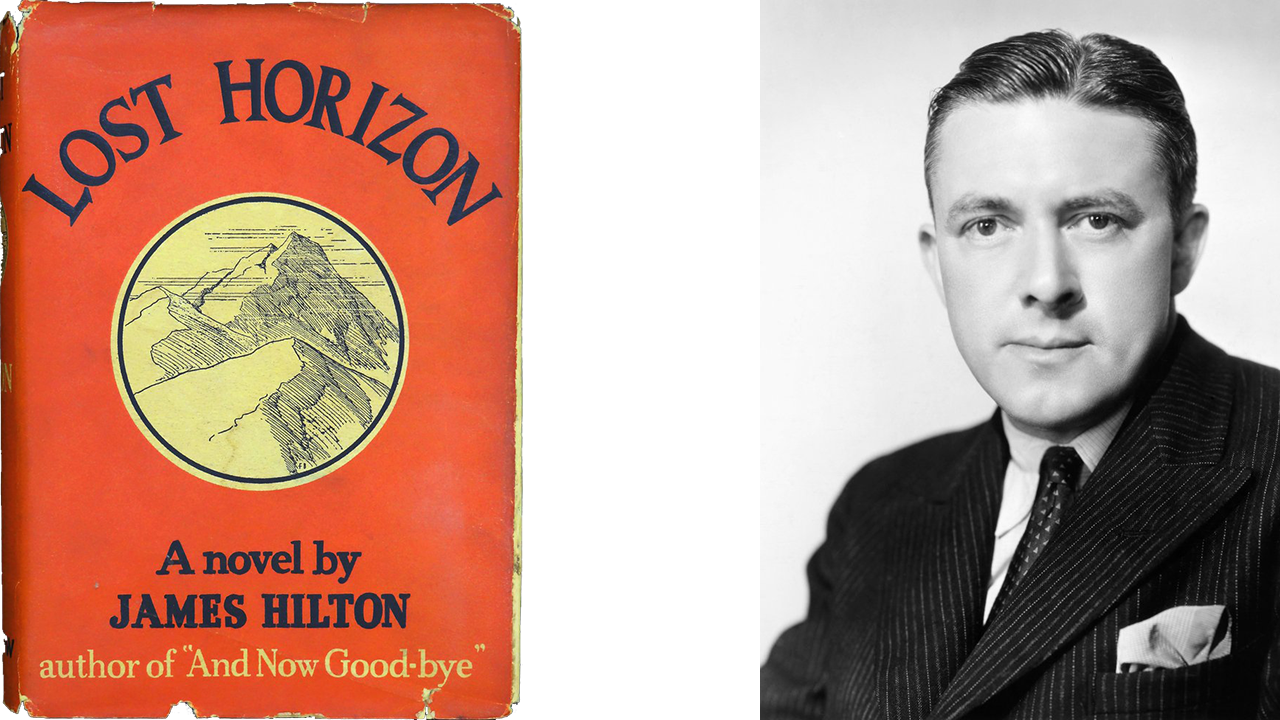
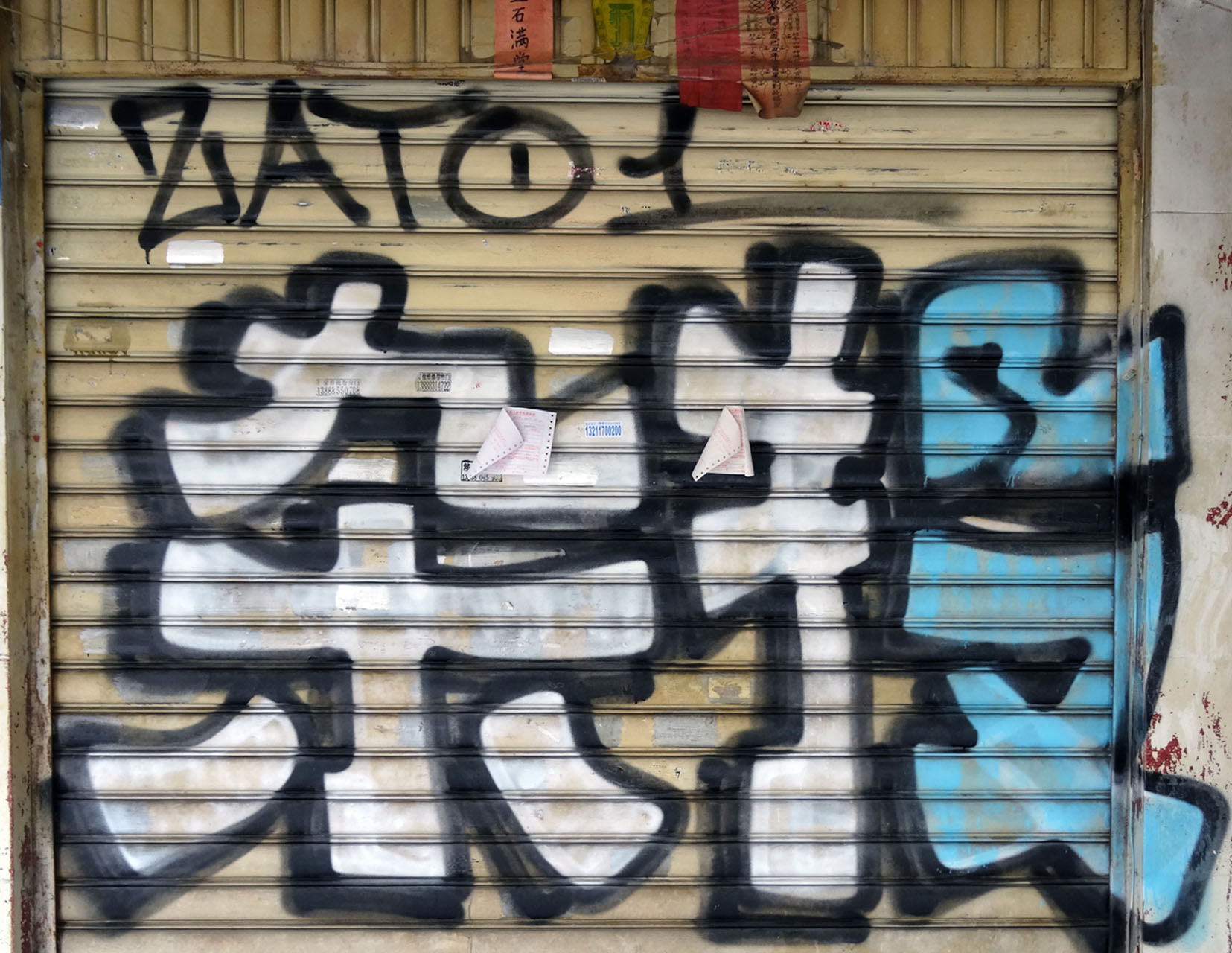
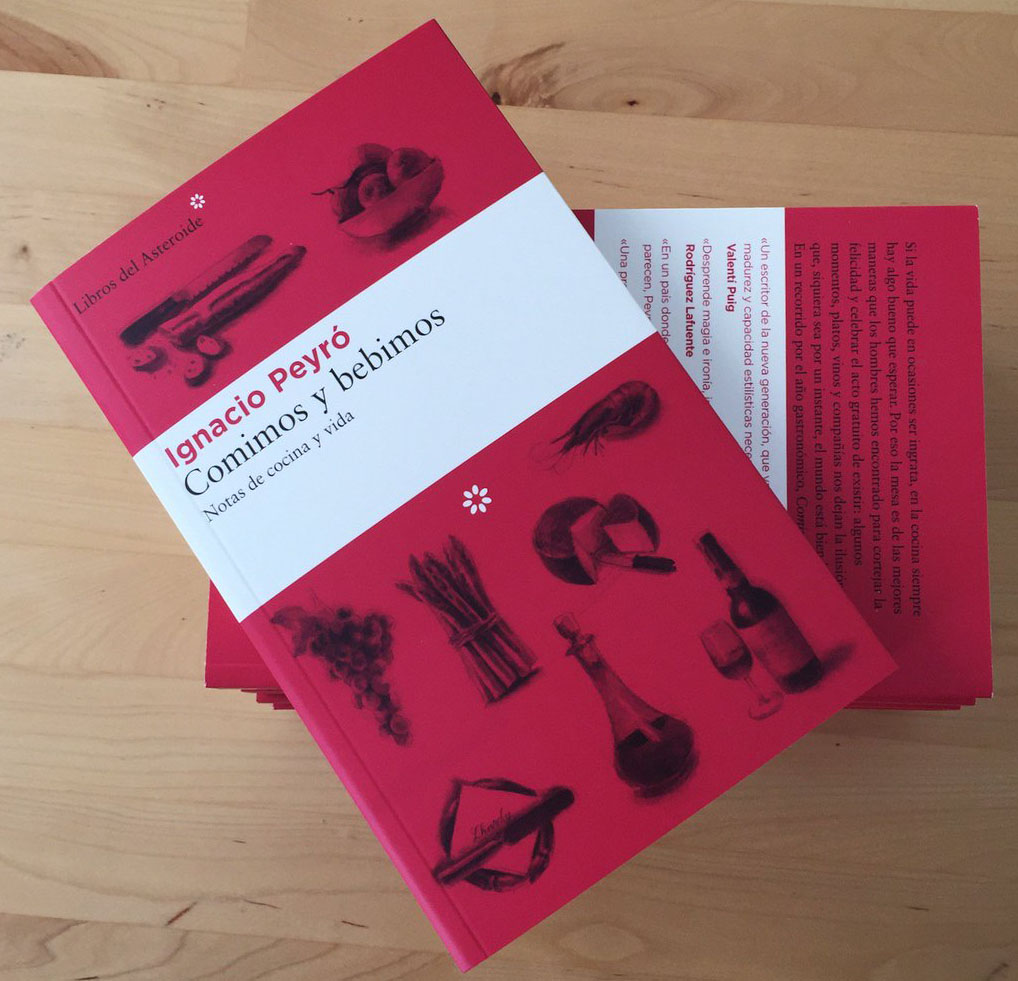
I like eating, drinking, smoking; I really do. Needless to say, I also like conversation, discussion, laughter and a long etcetera of other things, but what really matters for me, what I really like doing, is sharing all these activities. To be honest, I don’t even like going to the bathroom alone, although one must, like a few other things, because after all, people talk.
Leonor gives me no credit for studying all those languages, Chinese, Japanese, because I enjoy it, as simple as that. I tell her she’s wrong and that what I really like is smoking, drinking and suchlike and that the studying is basically self-improvement, and that doing so does require an effort, and a hell of an effort at that. But that’s pretty much where she and I are at. I should point out that Leonor is my mother-in-law.
Anyway, to the point, and getting back to the pleasures of eating and the good life in general, I’ve just read Ignacio Peyró’s latest book, Comimos y bebimos, subtitulado Notas de cocina y vida, (We ate and we drank: notes on cooking and life) published by Libros del Asteroide.
I think the best thing I can say about it is that it’s a book to be shared, because after finishing each page, I want to talk about it with somebody, uncorking a bottle and sharing a bite to eat. Anyway, I’ll say no more and instead leave you with a small fragment that I believe counters our age of running and vigorexia…
More maiorum
Montaigne’s appetite was such that he was unable to talk when seated at the table, while Doctor Johnson ate trancelike, breaking into a sweat, the veins standing out on his brow. And here we are today, worried about whether or not to ask for a sliver of cheese. (Page 163)
P.S. What some writers might call praise, I don’t. So let’s say it: Ignacio, you’re almost better in book form than in person. And that goes for Pedro Letai as well!!!
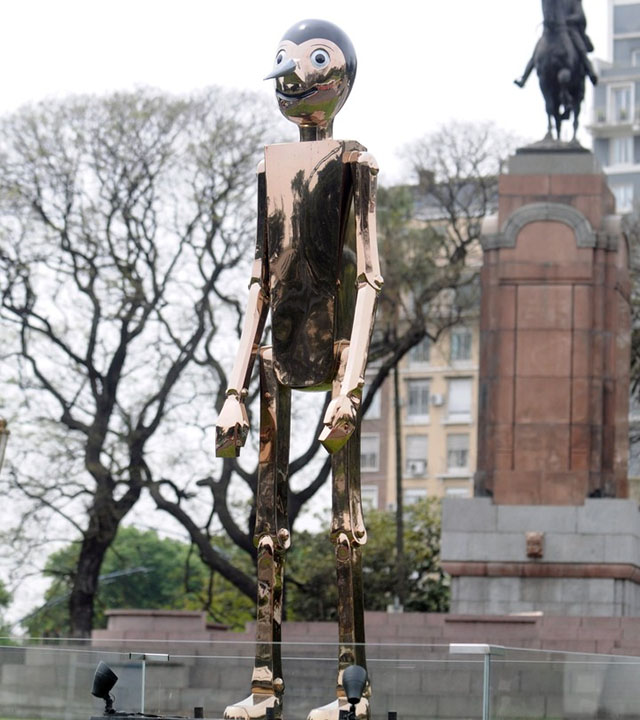
Of the 100 stories inspired by the paintings of Miguel Panadero I wrote, we ended up choosing just 51 for our book Dibugrafias. Here’s one we didn’t use, Pinocchio strikes again, which came to mind after reading this article, Una brillante escultura de Pinocho denuncia la corrupción en Recoleta (A brilliant statue of Pinocchio criticizes corruption in Recoleta) in Argentinean daily Clarín, published on November 2.
The artist, Alberto Echegaray Guevara, says the aim of the four-meter high statue, weighing 260 kilograms, is to highlight all the corruption and lying in the world. “Corruption is intrinsic to us, and is globalized. It’s the same with lying. Scientists say we lie between two and 200 times a day, it’s called the ‘science of deception’ and covers different types of lies. And when we can’t lie to anybody, sometimes we lie to ourselves. That’s the famous self-deception, one of the worst kinds of lying,” says the artist in an interview with journalist Maximiliano Kronenberg.
Alberto Echegaray Guevara’s credentials are nothing if not impressive. As well as being an artist, he’s a specialist in money laundering and crypto-currencies, a graduate of the Ecole Nationale D’administración in Paris, holds a Master in Arts from the University of Georgetown, and a post-graduate in Management from Harvard Business School. And it’s all true. Perhaps we can learn something from all this around these parts, where we see to love inventing qualifications!
Here’s what all those Pinocchios deserve, in this humble servant’s version of Miguel Panadero’s Pinocchio, as mentioned above.

PINOCCHIO STRIKES AGAIN
Pinocchio strikes again, he’s the handsomest, the best-paid, the guy with the most, and of course, the guy who…
The girl says it’s great that Pinocchio is the guy with the most, but that Eugenio, her boyfriend, says the same, and that somebody has to be the least.
Pinocchio tells the girl that her Eugenio is definitely lying and that what he says just can’t be true. The girl says Eugenio says that it’s Pinocchio who’s lying.
Pinocchio is angry because the world is awash with liars. Eugenio is angry for the same reason. The girl is angry with Eugenio as well as with Pinocchio and tells them both to quit striking again, left right and center, lying all over the place, because the whole thing has backfired on them. Now she doesn’t love either of them.
Aro Beach, May 31, 2014.
隋唐演义150-001
Nothing is more important than telling a tale, or to put it another way, nothing is more important than living to tell a tale. Once the tale is over, the party, sometimes great fun, sometimes very sad, is also inevitably over.
Last September 11, Shan Tianfang (单田芳), like the unfortunate occupants of the Twin Towers years earlier, ceased telling tales.Shan Tianfang was one of the greatest modern exponents, if not the greatest, of what the Chinese call Pingshu (评书 or shuoshu 说书), the oral storytelling tradition dating to the Song dynasty (960 – 1279). In his memory, I leave this small example of his art: Shan Tianfang, a Superstar of Chinese Storytelling
Photos: Jesús Pascual – IE Business School
Among the works I read out or recited at the Jardín del Romeral, the garden created by the reputed landscaper Leandro Silva, at this year’s Hay Festival Segovia 2018, this version of my short story Mr. No stands out. I have retitled it Mister Independence, from my book Dibugrafías, co-created with artist Miguel Panadero.
Mister Independence
Mister. Independence is very much at home in Indepenland, as one might well expect. The country is his. Streets, avenues, monuments, when not expressly dedicated to his personality cult, at one moment or another, all refer clearly to him. Needless to say, in general, the atmosphere in Indepenland is an Independent atmosphere.
Nevertheless, certain voices have highlighted not just the opportuneness of a certain independence, but furthermore, the need to resume talks with Depenland and Mister Dependence, because at the end of the day, they point out, it makes as little sense to go around shouting and asking for independence the whole time as it does to go around shouting and asking for dependence, and that’s without getting into the childishness involved in being surrounded by so many peers.
At the poetry recital in the Jardin del Romeral, which once again I coordinated, I was joined by writers such as the British-Egyptian Sabrina Mahfouz, Wales’s Dylan Moore, German poet Michael Krüger, Brazil’s Alexandre Vidal Porto, Polish poet Dorota Maslowska, British-Spanish poet Bek Clark, and poet and journalist Carlos Aganzo. Also taking part were, among others, Caroline Michel, the President of the Hay Festival, Simon Manley, the UK ambassador to Spain, and the ambassador of the Netherlands in Spain, Matthijs van Bonzel.